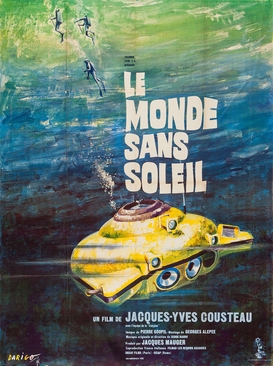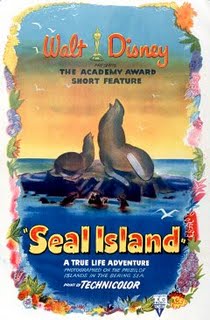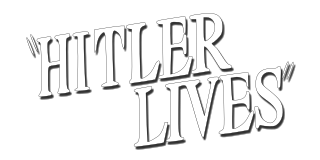Related Research Articles
This is a list of films by year that have received an Academy Award together with the other nominations for best documentary short film. Following the Academy's practice, the year listed for each film is the year of release: the awards are announced and presented early in the following year. Copies of every winning film are held by the Academy Film Archive. Fifteen films are shortlisted before nominations are announced.

Donn Alan Pennebaker was an American documentary filmmaker and one of the pioneers of direct cinema. Performing arts and politics were his primary subjects. In 2013, the Academy of Motion Picture Arts and Sciences recognized his body of work with an Academy Honorary Award. Pennebaker was called by The Independent as "arguably the pre-eminent chronicler of Sixties counterculture".

Daisy Bates was an American civil rights activist, publisher, journalist, and lecturer who played a leading role in the Little Rock Integration Crisis of 1957.
Charles Eli Guggenheim was an American documentary film director, producer, and screenwriter. He was the most honored documentary filmmaker in the academy history, winning four Oscars from twelve nominations.

Jefferson Allison Thomas was one of the Little Rock Nine, a group of African-American students who, in 1957, were the first black students ever to attend classes at Little Rock Central High School in Little Rock, Arkansas. In 1999, Thomas and the other students of the Little Rock Nine were awarded the Congressional Gold Medal by President Bill Clinton.

World Without Sun is a 1964 French documentary film directed by Jacques-Yves Cousteau. The film was Cousteau's second to win the Academy Award for Best Documentary Feature, following The Silent World in 1956.

Seal Island is a 1948 American documentary film directed by James Algar. Produced by Walt Disney, it was the first installment of the True-Life Adventures series of nature documentaries. It won an Oscar in 1949 for Best Short Subject (Two-Reel).
Casals Conducts: 1964 is a 1964 American short film directed by Larry Sturhahn. It is a documentary about the cellist and conductor Pablo Casals. It won an Oscar at the 37th Academy Awards in 1965 for Best Short Subject. The Academy Film Archive preserved Casals Conducts: 1964 in 2013.
Robert Kennedy Remembered is a 1968 American short documentary film produced and directed by Charles Guggenheim. In 1969, it won an Oscar for Best Short Subject at the 41st Academy Awards.

Hitler Lives is a 1945 American short documentary film directed by Don Siegel, who was uncredited. The film won an Oscar at the 18th Academy Awards in 1946 for Documentary Short Subject. The film's copyright was renewed.
Karl Hess: Toward Liberty is a 1980 American short documentary film about the anarchist Karl Hess, directed by Roland Hallé and Peter Ladue. It won an Oscar in 1981 for Documentary Short Subject.

A Time for Justice is a 1994 American short documentary film produced by Charles Guggenheim. In 1995, it won an Oscar for Documentary Short Subject at the 67th Academy Awards.

A City Decides is a 1956 American short documentary film directed by Charles Guggenheim about the racial integration of St. Louis Public Schools. It was nominated for an Academy Award for Best Documentary Short.
Children Without is a 1964 American short documentary film directed by Charles Guggenheim, about a young girl and her brother growing up in the housing projects of Detroit. It was nominated for an Academy Award for Best Documentary Short, losing to another film by Guggenheim, Nine from Little Rock. Children Without was preserved by the Academy Film Archive in 2016.
Monument to the Dream is a 1967 American short documentary film about the Gateway Arch National Park directed by Charles Guggenheim and narrated by Paul Richards. At the time of the film's production, the park was known as the Jefferson National Expansion Memorial. It was nominated for an Academy Award for Best Documentary Short.
Mighty Times: The Legacy of Rosa Parks is a 2002 American short documentary film directed by Robert Houston and produced by Robert Hudson about the 1955/56 Montgomery bus boycott led by Rosa Parks.
George Cooper Stevens Jr. is an American writer, playwright, director, and producer. He is the founder of the American Film Institute, creator of the AFI Life Achievement Award, and co-creator of the Kennedy Center Honors. He has also served as Co-Chairman of the President's Committee on the Arts and Humanities.
The Little Rock Film Festival (LRFF) was an annual film festival held in Downtown Little Rock, Arkansas each spring. Based in the historic River Market District, home to the William Jefferson Clinton Presidential Library, the Little Rock Film Festival has showcased the best in Narrative, Documentary, and Short films from around the World. It hosts parties, panels, workshops, and youth programs for aspiring filmmakers. The LRFF devotes screenings and programs specifically for Southern and Arkansas films. In 2010, citing prize money, distribution opportunity, and a chance to be a part of a large event, MovieMaker Magazine included the Little Rock Film Festival on its annual list of The Top 25 Film Festivals Worth the Entry Fee.
The Witness: From the Balcony of Room 306 is a 2008 documentary short film created to honor the 40th annual remembrance of the life and death of Martin Luther King Jr. Directed by Adam Pertofsky, the film received a 2008 Oscar nomination in the "Best Documentary Short Subject" Category at the 81st Academy Awards.
The history of the 1954 to 1968 American civil rights movement has been depicted and documented in film, song, theater, television, and the visual arts. These presentations add to and maintain cultural awareness and understanding of the goals, tactics, and accomplishments of the people who organized and participated in this nonviolent movement.
References
- ↑ Encyclopedia of Arkansas
- ↑ “It's Only Convincing If They Say It Is”: Documenting Civil Rights Progress in the USIA's Nine from Little Rock on JSTOR
- ↑ "The Charles Guggenheim Collection". Academy of Motion Picture Arts and Sciences . Retrieved April 10, 2012.
- ↑ "The 37th Academy Awards (1965) Nominees and Winners". oscars.org. Retrieved June 25, 2016.
- ↑ Documentary Winners: 1965 Oscars